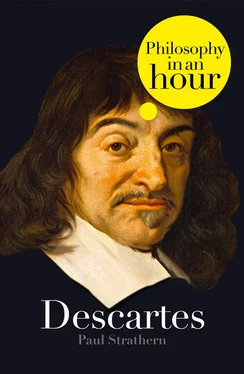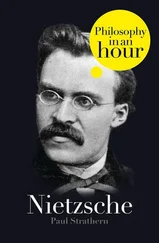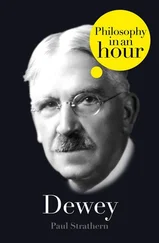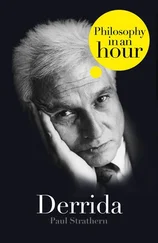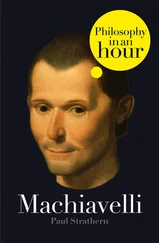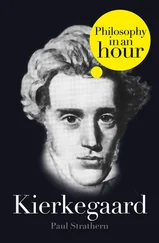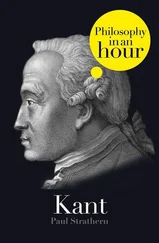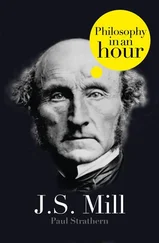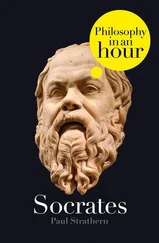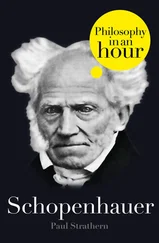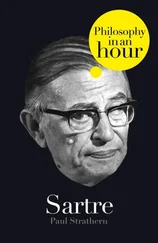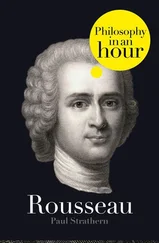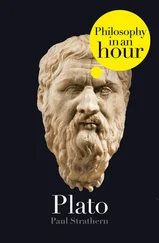Descartes
PHILOSOPHY IN AN HOUR
Paul Strathern
Cover
Title page Descartes PHILOSOPHY IN AN HOUR Paul Strathern
Introduction Introduction By the end of the sixteenth century, philosophy had stopped. It was Descartes who started it up again. Philosophy had begun for the first time in the sixth century B.C. in ancient Greece. Two centuries later it entered a golden era with Socrates, Plato, and Aristotle. Then, for nearly two thousand years, nothing happened. At least, nothing original happened. Nonetheless several distinguished philosophers appeared during this period. The third-century Alexandrian Plotinus refined Plato’s philosophy, in the process creating Neoplatonism. St. Augustine of Hippo then refined Neoplatonism to the point where it was acceptable to Christian theology. The Islamic scholar Averroës refined parts of Aristotle’s philosophy, and Thomas Aquinas in turn rendered these acceptable to Christian theology. All four of these disparate figures advanced the course of philosophy, but not one of them produced an entirely new philosophy of his own. Their work was essentially exegesis, commentary, and elaboration of the philosophy of Plato and Aristotle. In this way these two pagan philosophers (and their pagan philosophies) became pillars of the Christian church. This intellectual conjuring trick was the main foundation of Scholasticism, the name given to philosophical activity during the Middle Ages. Scholasticism was the philosophy of the church and prided itself on its lack of originality. New philosophical ideas resulted only in heresy, the Inquisition, and burning at the stake. The ideas of Plato and Aristotle gradually became buried beneath layers of religiously correct Christian commentary, and philosophy dried up. By the mid-fifteenth century this moribund stage had been reached in almost all fields of intellectual endeavor. The church reigned supreme throughout the medieval world. But already the first cracks were beginning to appear in this vast edifice of intellectual certainty. Ironically the main source of these cracks was the same classical world that had produced Plato and Aristotle. Much learning that had been lost or forgotten during the Dark Ages now began coming to light, inspiring a renaissance (or rebirth) of human knowledge. The Renaissance brought with it a new humanistic outlook. This was followed by the Reformation, which ended the hegemony of the church. Yet more than a hundred years after these developments had transformed Europe, philosophy remained stuck in the bog of Scholasticism. This came to an end only with the arrival of Descartes, who produced a philosophy fit for the new era. In no time this spread through Europe and even achieved the ultimate accolade of being named after its founder: Cartesianism.
Descartes’s Life and Works
Afterword
Further Information
From Descartes’s Writings
Chronology of Significant Philosophical Dates
Chronology of Descartes’s Life
Chronology of Descartes’s Era
Recommended Reading
About the Author
Copyright
About the Publisher
By the end of the sixteenth century, philosophy had stopped. It was Descartes who started it up again.
Philosophy had begun for the first time in the sixth century B.C. in ancient Greece. Two centuries later it entered a golden era with Socrates, Plato, and Aristotle. Then, for nearly two thousand years, nothing happened. At least, nothing original happened.
Nonetheless several distinguished philosophers appeared during this period. The third-century Alexandrian Plotinus refined Plato’s philosophy, in the process creating Neoplatonism. St. Augustine of Hippo then refined Neoplatonism to the point where it was acceptable to Christian theology. The Islamic scholar Averroës refined parts of Aristotle’s philosophy, and Thomas Aquinas in turn rendered these acceptable to Christian theology. All four of these disparate figures advanced the course of philosophy, but not one of them produced an entirely new philosophy of his own. Their work was essentially exegesis, commentary, and elaboration of the philosophy of Plato and Aristotle. In this way these two pagan philosophers (and their pagan philosophies) became pillars of the Christian church. This intellectual conjuring trick was the main foundation of Scholasticism, the name given to philosophical activity during the Middle Ages. Scholasticism was the philosophy of the church and prided itself on its lack of originality. New philosophical ideas resulted only in heresy, the Inquisition, and burning at the stake. The ideas of Plato and Aristotle gradually became buried beneath layers of religiously correct Christian commentary, and philosophy dried up.
By the mid-fifteenth century this moribund stage had been reached in almost all fields of intellectual endeavor. The church reigned supreme throughout the medieval world. But already the first cracks were beginning to appear in this vast edifice of intellectual certainty. Ironically the main source of these cracks was the same classical world that had produced Plato and Aristotle. Much learning that had been lost or forgotten during the Dark Ages now began coming to light, inspiring a renaissance (or rebirth) of human knowledge.
The Renaissance brought with it a new humanistic outlook. This was followed by the Reformation, which ended the hegemony of the church. Yet more than a hundred years after these developments had transformed Europe, philosophy remained stuck in the bog of Scholasticism. This came to an end only with the arrival of Descartes, who produced a philosophy fit for the new era. In no time this spread through Europe and even achieved the ultimate accolade of being named after its founder: Cartesianism.
Descartes’s Life and Works
Descartes never did a stroke of useful work in his life. At various times he described himself as a soldier, a mathematician, a thinker, and a gentleman. The last comes closest to describing his attitude toward life as well as his social status. His youthful inclination to a life of leisurely ease soon settled into a routine. He lived on his private income, rose at noon, and traveled when he felt like it. Such was his life – no dramas, no wives, no great public success (or failure). Yet Descartes was indisputably the most original philosopher to appear in the fifteen centuries following the death of Aristotle.
By the time Descartes arrived on the scene the Renaissance had brought a new humanistic outlook to Europe, and the Reformation had ended the hegemony of the Catholic church. Yet it remained for Descartes to launch the modern age of philosophy. From this period on, the primacy of the individual and the analysis of human consciousness became fundamental to philosophy, a focus that has only recently been superseded by the primacy of the dictionary and analysis of its contents.
René Descartes was born March 31, 1596, in the small town of La Haye, in the Creuse Valley thirty miles south of Tours, France. This spot has now been renamed Descartes, and if you visit it you can still see the house where he was born and the twelfth-century church of St. Georges where he was baptized.
René was the fourth child, and his mother was to die in childbirth the following year. His father Joachim was a judge in the High Court of Brittany. This met at Rennes, 140 miles away, which meant that Joachim was at home for less than half the year. He soon remarried, and René was brought up in the house of a grandmother. Here his main attachment was to his nurse, for whom he retained the fondest regard. He was to pay for her upkeep until the day she died.
Descartes spent a solitary childhood, accentuated by his sickly nature, and he quickly learned to do without company. From his early years he is known to have been introspective and reserved: a wan-faced child with thick curly black hair and large shadow-ringed eyes, wandering through the orchard in his black coat and knee breeches, a black wide-brimmed hat on his head and a long woolen scarf wound round his neck.
Читать дальше
